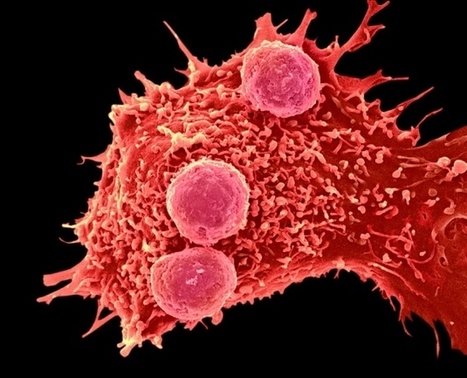The FDA has granted CB-010 a regenerative medicine advanced therapy designation for relapsed/refractory large B-cell lymphoma and a fast track designation for relapsed/refractory B-cell non-Hodgkin lymphoma.
Research and publish the best content.
Get Started for FREE
Sign up with Facebook Sign up with X
I don't have a Facebook or a X account
Already have an account: Login
 Your new post is loading... Your new post is loading...
 Your new post is loading... Your new post is loading...
|
|














CB-010, an allogeneic anti-CD19 CAR T-cell therapy with a PD-1 knockout, is being evaluated in the Phase 1 ANTLER trial (NCT04637763) in patients with relapsed/refractory NHL-B, including diffuse large B-cell lymphoma, primary mediastinal large B-cell lymphoma and high-grade B-cell lymphoma. This therapy is a genome-editing strategy designed to improve the persistence of anti-tumor activity by limiting premature depletion of CAR-T cells. The first multicenter, open-label, Phase 1 human trial ANTLER is evaluating the safety and efficacy of CB-010 in patients with relapsed/refractory B-NHL who have received at least 2 prior lines of chemoimmunotherapy. The study consists of 2 parts, including the dose escalation part (Part A) and the dose expansion part (Part B). Results from the ANTLER trial presented at the EHA 2022 Congress demonstrated encouraging safety data and antitumor activity for CB-010 at dose level 1 (40 x 106 CAR T cells). Specifically, results indicated that all 6 patients achieved a complete response (CR) as the best response after treatment with CB-010 at dose level 1. At 6 months, 3 of 6 patients maintained a CR, with the longest duration being 15 months. The investigators are currently recruiting patients for the second dose level of 80 x 106 CAR T cells.